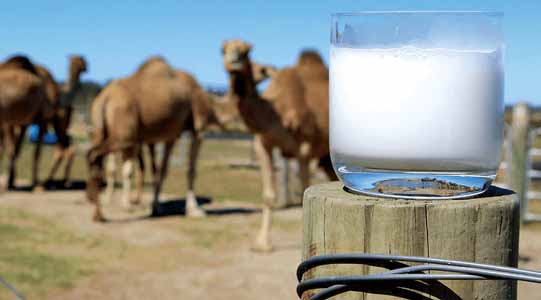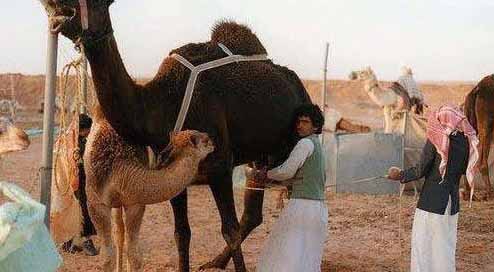
Pakistan’s camel milk to be very popular in Chinese market: Prof Cheng
China Economic Net
Beijing: The Chinese and Pakistani enterprises may conduct on the spot studies and cooperate in camel milk production and sales as it will be very popular in the Chinese market, Cheng Xizhong, visiting professor at Southwest University of Political Science said on Wednesday.
The camel milk has long been produced in Pakistan, while China started camel milk production only two years ago.
Therefore, Chinese and Pakistani enterprises may conduct on-the-spot studies and cooperate in camel milk production and sales.

“I believe that camel milk from Pakistan will be very popular in the Chinese market”, he said in his article published by China Economic Net (CEN).
The amount of camel milk produced in Pakistan is much higher than that in China. The camels in Pakistan are single-humped ones, and the milk yield is higher than that of China’s Bactrian camels.
The milk yield of a single-humped camel in Pakistan can reach three tons in one lactation period, while that of China`s Bactrian camel is less than one ton.
Camels were the most important means of transportation along the ancient Silk Road. Therefore, we may say that in ancient Chinese civilization, it was the camel who trod an economic and cultural road connecting Chinese and Western civilizations.
With the increasing demand for camel milk, camels will play a new role in the Belt and Road cooperation. In 2018, the number of camels in China was 338,400, with an increase of 6.10% over the previous year. Camel breeding in China is mainly concentrated in Inner Mongolia and Xinjiang.
In 2018, the number of camels in Inner Mongolia was 172,700 and that in Xinjiang was 123,600, accounting for 87.59% of the total number of camels in China. In 2019, the number of camels in China was 405,300, with an increase of 4.27% over the previous year.
China has a population of 1.4 billion, and in 2019, China’s camel milk production was only 17,000 tons, far from meeting the needs of the Chinese people.
Now it is said that drinking camel milk has many magical benefits, and the Chinese people, who attach importance to health care, have a growing demand for camel milk. Therefore, China has to find the sources of camel milk in the international market.
Recently, I noticed a piece of news from the media. There is a 41-year-old lady named Zhang Xiaohui in Shenzhen, China. She found herself suddenly full of energy in the past three months, looking more than 10 years younger. Her husband, who had been away on business for a long time, came home to see her so young and beautiful.
He felt very surprised and thought that she might have done a facial. She told her husband that she drank some camel milk every day, one cup in the morning and another in the evening.
She said that she had not expected such a good effect. She had also recovered from her insomnia.
A Pakistani friend of mine told me that camel milk in Pakistan is cheaper than cow milk, and Pakistani camel milk is genuine at a fair price.
The camels in Pakistan eat grasses that grow naturally, there are no hormones and other additives in the feed, so the camel milk produced in Pakistan is organic.
